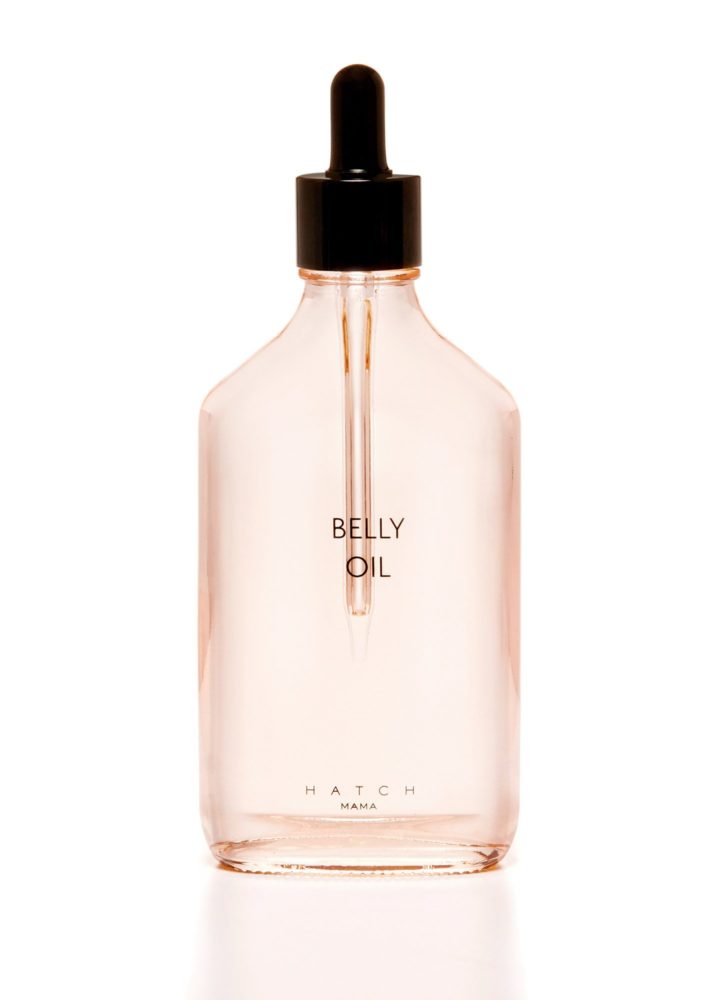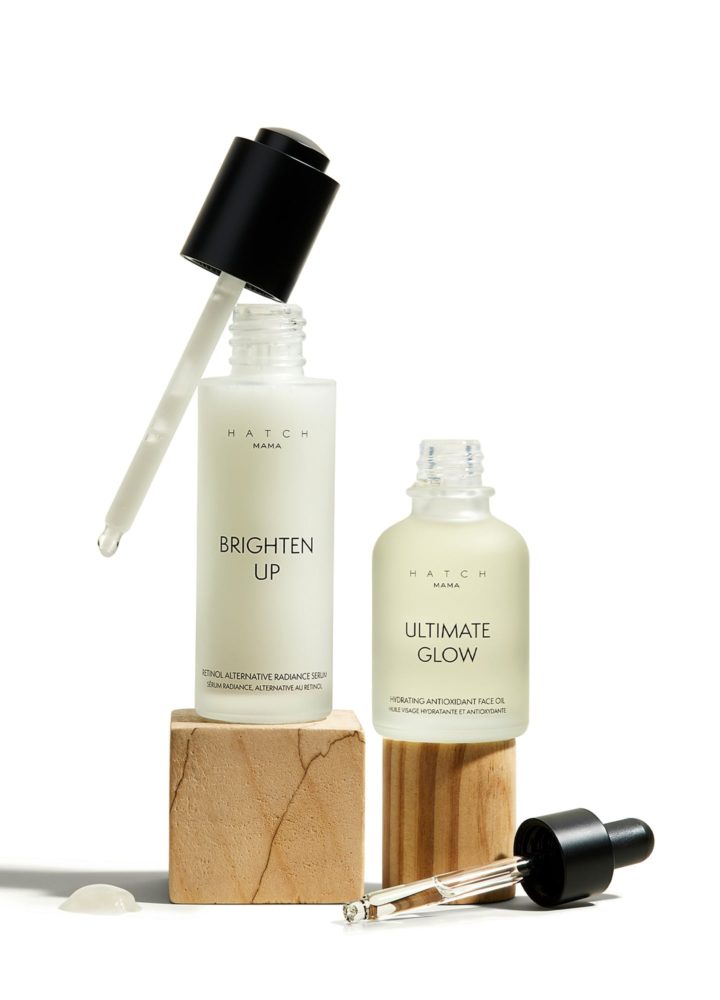Is it just us, or are essential oils more popular than ever? Headaches, muscle aches, stress — it seems that there’s nothing they aren’t touted to fix. But how much of that is hype, and how much is actually true?
It turns out that essential oils like sandalwood and mugwort are the real deal — and some can be helpful in treating pregnancy-related ailments. Buh-bye, morning sickness!
We’ve investigated all the facts to help you safely and successfully use essential oils to enhance your wellness and skincare routine.
Keep reading for a full guide on essential oils for pregnant women below:
What Are Essential Oils?
If you’re confused about what, exactly, essential oils are, you aren’t alone. That’s why we’re here to share the essential (pun intended) research on what’s in your skincare products, diffusers, and bath bombs.
We’ve compiled the research and got the answers to your most burning questions, starting with what makes an essential oil, well, essential.
Essential oils are aromatic oils extracted from plants, from eucalyptus to cedarwood. The practice of using them to treat both physical and spiritual ailments dates back thousands of years to ancient civilizations worldwide.
Interestingly, the use of essential oils developed individually and simultaneously among several different ancient civilizations, including ancient China, Rome, Egypt, India, and Greece.
Diluting Essential Oils
Plant extracts like Roman chamomile and fennel have been used to treat stress, skin conditions, migraines, depression, infections, and more. They get their namesake from the fact that they contain the “essence” of the plant in question — the smell, the healing properties — thanks to how highly concentrated the oils are before dilution.
In fact, essential oils almost always need to be diluted in a carrier oil before being used. Otherwise, their high concentration can cause skin irritation, rashes, and other complications. That’s why you don’t dab non-diluted essential oils on a cotton ball and rub them on your skin.
They’re most often diluted within a carrier oil or infused into another product like a bath soak or lotion. Or perhaps you’ve used a hair oil containing rosemary or jojoba before to promote hair growth. If not, your favorite perfume might contain essential oils derived from bergamot or geranium.
But essential oils are also often used in therapeutic settings as part of a practice called aromatherapy.
Let’s dive in:
What Is Aromatherapy?
Like pregnancy + your favorite quart of Ben and Jerry’s, aromatherapy + essential oils go hand in hand. Aromatherapists practice using scent for therapeutic purposes — that is, using smells to treat issues like nausea, stress, or muscle tension.
The practice of aromatherapy dates back centuries. Aromatherapy was a large part of Ancient Chinese, Indian, and Egyptian cultures. Indigenous cultures, like in Australia and the North and South Americas, relied on essential oils as well.
Despite the long history of use, research has only started to catch up. Systematic reviews suggest that essential oils and aromatherapy can be part of a full wellness routine, and the research is ongoing.
It’s possible that many of the benefits of essential oils come from the placebo effect. But you know what, if a placebo is what it takes to stop those pregnancy symptoms, we’ll take it.
Are Essential Oils Safe To Use While Pregnant?
Essential oils are safe to use during pregnancy — sometimes. Many essential oils are fantastic at treating pregnancy-related issues. However, some types have been correlated with early contractions and other complications.
What Oils Aren’t Safe for Pregnant Women?
The long list of essential oils to be avoided while preggo or breastfeeding includes:
- Basil
- Birch
- Camphor
- Hyssop
- Peppermint
- Rosemary
- Sage
- Tansy
- Wormwood
And more — these are only the most common ones. If you aren’t sure whether an essential oil is safe to use during pregnancy or not, talk to your Ob/Gyn or healthcare provider. They’ll be able to give you the green light (or not) to use specific essential oils during pregnancy.
This is especially true during the first trimester when your little babe is starting to develop their brain and spinal cord. Essential oils are absorbed through the skin, and during this time, babies are especially sensitive.
Scientists are still unsure about the effects of essential oils on a growing fetus during the first trimester, so your doctor might suggest that you wait for the second or third trimester to indulge in the oils.
Finally, ingestion of essential oils isn’t safe — they can be toxic in large quantities, even extracts from foods — think almond oil or aniseed oil. These aren’t foods themselves, despite the delicious-sounding names.
So, we’ve gotten through the important stuff. Now what essential oils are safe to use during pregnancy, and what can they be used for?
Keep reading for a list of our four favorite pregnancy-safe essential oils and their uses below.
- Lavender
One of the most reliable and commonly used essential oils is lavender. Lavender is renowned for its calming and relaxing properties and is often used to treat stress and anxiety. And the best part of these claims is that they’re backed up by science — a review of 22 scientific studies found that lavender can relieve anxiety and lower your heart rate, cortisol levels, and systolic blood pressure.
Perhaps thanks to its relaxing properties, lavender has also been used to address sleep problems and insomnia. One 2015 study showed that lavender could improve postpartum sleep quality. Another found that lavender essential oil effectively reduced anxiety and sleep issues among ICU patients.
We know better than anyone that baby-proofing every aspect of your life isn’t exactly a walk in the park. Getting ready for a new baby and going through delivery can be extremely overwhelming — so don’t be afraid to put on your comfiest lounge set and grab the most ubiquitous essential oil to help manage your stress and anxiety.
After all, the first step to taking care of your growing baby is taking care of yourself!
- Chamomile
When we think of chamomile, we typically think of rainy days and tea. But chamomile has another great use: treating headaches and migraines.
Chamomile has long been used in the traditional Persian cure for headaches, which requires combining a few drops of chamomile essential oil with sesame oil and dabbing it on your temples.
This cure isn’t just anecdotal. Recent scientific studies have provided some evidence to support this tradition, primarily findings on the neuroprotective and anti-inflammatory properties of chamomile and sesame oil.
Plus, chamomile is pregnancy safe — so all of this together means that if you feel so inclined to treat your next headache the Persian way, go for it! Science AND historical tradition have got your back.
- Tea Tree
You’re four months pregnant and absolutely glowing when all of a sudden you look in the mirror and spot — a zit?! Pregnancy acne is one of those common and unfortunate side effects that few people talk about until it happens to them. It also comes at a very unfortunate time because many skincare product ingredients, like salicylic acid, aren’t safe to use during pregnancy.
Luckily, we have tea tree oil on our side. Aside from its lovely, fresh scent, tea tree oil has an abundance of medicinal uses, making it a highly popular additive in many cosmetic and beauty products. Tea tree oil is most often used to treat skin issues, including bug bites, rashes, and of course, acne.
The common essential oil is so helpful for skin concerns because it’s a triple threat: antifungal, antiviral, and antibacterial. We especially love it because it’s pregnancy-safe (outside of your first trimester). Dilute a few drops with a carrier oil or other skincare ingredient, like aloe vera, and dot it on your acne. With any luck, those annoying pimples will vanish in no time.
- Lemon (and Other Citrus Essential Oils)
Morning sickness and other random bouts of nausea (thank you, unexpected food aversions) are one of the most reliable parts of being pregnant. But did you know there’s an equally reliable essential oil cure?
Lemon essential oil, and other citrus essential oils like grapefruit or mandarin orange, are the most commonly used essential oils during pregnancy and are highly effective at relieving nausea and vomiting. One study found that over a quarter of women surveyed had successfully used the scent of lemons to treat their nausea.
Aside from treating vomiting and nausea, the scent of citrus is relaxing. We all know that the kitchen isn’t really clean until some sort of citrus-scented candle has been lit. If you aren’t completely sold on essential oils and want to take a baby step into aromatherapy, lemon essential oil might be the perfect first step for you.
Mothers (Nature) Unite
Far from being woo-woo wishful thinking, there actually is a lot of science to back up the many uses of essential oils during pregnancy. If you want to start incorporating essential oils into your pregnancy self-care routine alongside your favorite belly oil, talk to your Ob/Gyn — and then, assuming they give you the green flag, go for it!
Sources:







